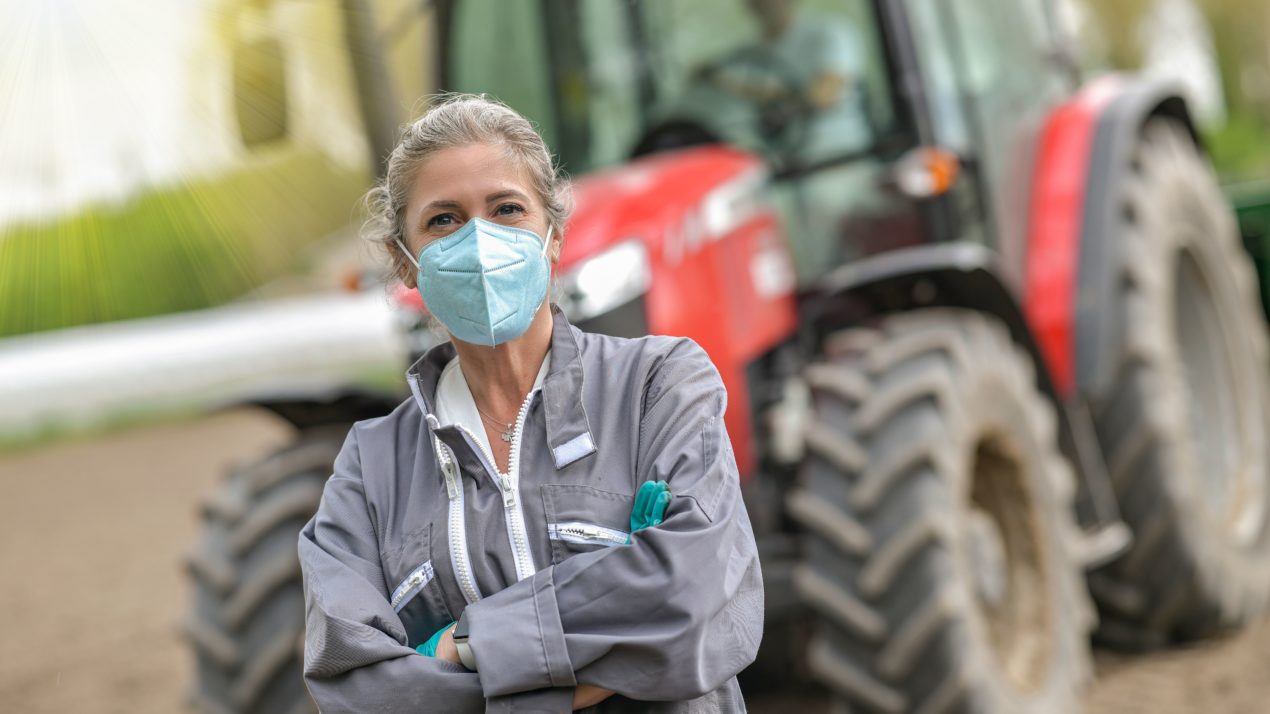
The COVID-19 pandemic has become much more serious and has brought the need for business health, safety and continuity planning to the forefront. Now is the time to communicate with employees and family members regarding plans to keep them safe, healthy, and working.
“While much of the negative impact on agriculture by COVID-19 is out of our control, there are things you can do now to reduce or prevent the impact of COVID-19 on the health and productivity of your farm,” said Jim Versweyveld, University of Wisconsin-Madison Division of Extension Walworth County Agriculture Educator. “First and foremost, please take care of yourself. Secondly, Extension has many resources for managing a farm during COVID-19 at our website https://farms.extension.wisc.edu/coronavirus.”
Plan to ensure farm business continuation
Extension has guides to help develop proper plans to deal with potential labor disruptions. This guide, available at https://farms.extension.wisc.edu/planning-for-a-labor-disruption, provides a 4-step process to mitigate the impact of a labor disruption due to employees being impacted by the pandemic. These guidelines include example templates for dairy operating plan (https://farms.extension.wisc.edu/dairy-farm-operating-plan/) and a crops/planting plan (https://farms.extension.wisc.edu/farm-continuation-planning/) to help as you develop your plans.
Maintain a safe workplace
“Employees are concerned about their health as well and risks in the workplace,” said Maria Jose Fuenzalida Valenzuela, UW-Madison Extension Dane County Dairy and Livestock Educator. “The COVID-19 Guidance for Farm Employers (https://farms.extension.wisc.edu/covid-19-guidance-for-farm-employers/) is a concise resource that considers the unique challenges of farms with tips for farm employers about communicating COVID-19 protocol to employees reflecting the most current and recommendations from the Center for Disease Control. This guide is also available in Hmong and Spanish, including a 6-minute video.”
The COVID-19 Response Plan Template for Fruit & Vegetable Farms (https://go.wisc.edu/4k3h98) is available to help farms plan action related to COVID-19 on their farms. Because every farm is unique, each farm’s response will be unique. The template is set up as a series of prompts, which sample policy language drawn from other farms’ experiences and fact-based best practices to reduce the spread of the virus that causes COVID-19. It includes example risk reduction measures that you may use, delete, or adapt.
Tips for minimizing risk for those who operate farm tractors, trucks, and other enclosed ag equipment—especially when the same machine is being operated over the course of a day or work week by multiple people are available at staying safe in the cab (https://fyi.extension.wisc.edu/news/2020/05/18/cleaning-ag-equipment/).
Assist Spanish Speaking Farmworkers
Factsheets about medical assistance for Hispanic farmworkers are available in both English (https://go.wisc.edu/w3wsy7)and Spanish (https://go.wisc.edu/9b49b6). They provide quick resources regarding when to seek medical attention, what to do if without health insurance, how to find a free clinic or health center. This information is also available in Spanish in a 4-minuto video (https://go.wisc.edu/9wn281).Employees can find information about COVID-19 Community Testing sites at https://www.dhs.wisconsin.gov/covid-19/community-testing.htm.
Keep kids at home safe
With school classes quarantined or temporarily utilizing a virtual format, many families have kids at home, and on the farm. Extension provides guidance for safe and age-appropriate jobs for your kids as many parents ask what farm jobs/chores can I safely give kids who are home from school? (https://farms.extension.wisc.edu/safe-farm-chores-for-farm-kids/).

